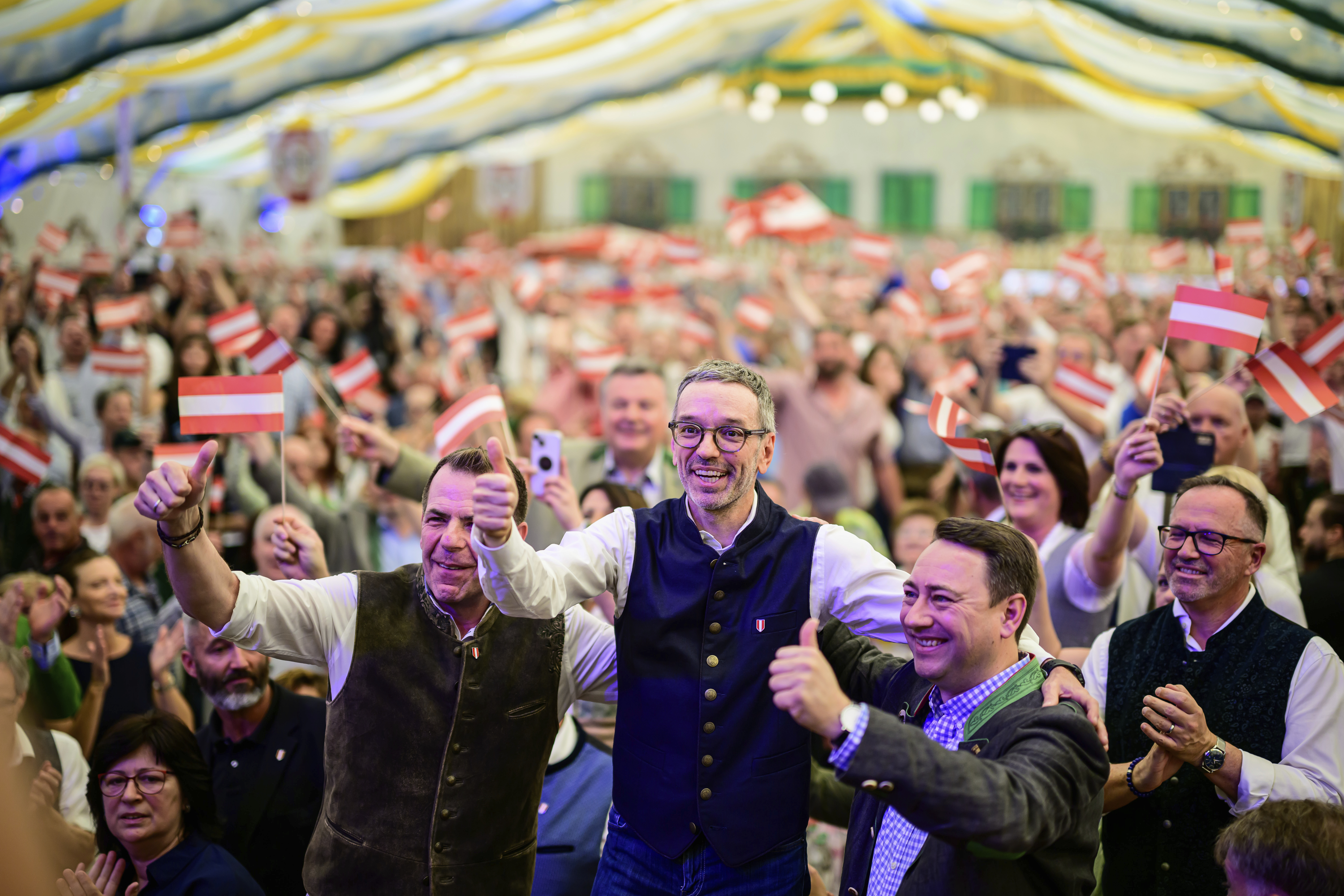The European Union mainstream is dreading an Austrian Chancellor Herbert Kickl, but negotiations between his party and the Austrian People’s Party (ÖVP) are leaving the ÖVP with a clear problem. Polling shows that the FPÖ is soaring in popularity, going to nearly 40 percent, while the ÖVP has crashed to third place, at a measly 17 percent.
It is a sharp turn of fortunes for the once dominant ÖVP, which had shunned the FPÖ, claiming it could never work with the party again.
The Lazarsfeld Society shows the FPÖ at a record high of 39 percent, a 3-point increase from a survey last week. During the national election last year, the FPÖ only earned 28.8 percent, enough for the party to already claim the first-place position. If the FPÖ were to secure 39 percent in a new election, it would leave the ÖVP in an even weaker negotiating position that it is already in, and leave the FPÖ with a 10-point increase in its vote count.
NATIONALRATSWAHL | Sonntagsfrage Market/Paul Lazarsfeld Gesellschaft/TZ ÖSTERREICH
FPÖ: 39% (+3)
SPÖ: 19%
ÖVP: 17% (-3)
NEOS: 10%
GRÜNE: 10% (+2)
KPÖ: 3%
Sonstige: 2% (-2)
Änderungen zur letzten Umfrage vom 19. Dezember 2024
Verlauf: https://t.co/roFKebZlfU#nrw29 #NRWahl pic.twitter.com/OsAjaUGmcJ
— Österreich Wählt (@Wahlen_AT) January 9, 2025However, other “traditional” parties like the SPÖ are also in dire straits. The party is at a historic low of 19 percent. The Greens and Neos are both at 10 percent. These three parties are polling in total at 46 percent, which would also not give them the majority they need to form a new government.
🇦🇹🚨AUSTRIA: FPÖ PARTY PREDICTED TO WIN NATIONAL ELECTIONS WITH 29.1% OF THE VOTE.
Lead candidate Herbert Kickl openly says he supports remigration.
“Remigration! I have absolutely no problem to say that word." pic.twitter.com/Ii3vIrjpJ7
— Remix News & Views (@RMXnews) September 29, 2024In the meantime, the new ÖVP leader, Christian Stocker, said his party is not afraid of new elections.
In the upcoming negotiations, he said they will explore whether the FPÖ is “honestly prepared to take responsibility for all people in this state. We must honestly answer whether we want to be a constructive and reliable part of the European Union or the opposite.” He also said he wanted to know “whether we are oriented towards the free world or towards dictatorships” and “whether we want to put the state as a whole above party interests.”
“Hungary and Austria combined could be a force to be reckoned with,” writes Politico. https://t.co/8ynpGhDD52
— Remix News & Views (@RMXnews) January 8, 2025The ÖVP and FPÖ have some serious differences, especially when it comes to foreign policy in relation to the war in Ukraine. However, on key issues such as immigration, the parties are aligned. Notably, the FPÖ is more of a socialist party, unlike many other right-wing mainstream parties in Europe, and has often criticized the ÖVP for its free market positions, which have harmed Austrian citizens. For example, the FPÖ called for a three-year freeze on rents to help Austrians facing housing inflation.






